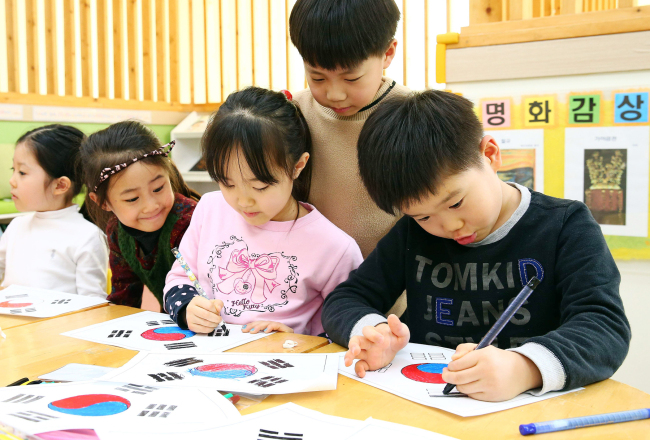The Gender Equality Ministry has been seeking to inflate the success of its child care program without increasing spending by pushing to recruit families that do not require financial support, while blanking those most in need, according to an official of the union for recruiters and workers in the program.
As families in the top income bracket can participate in the ministry’s child care program without requesting extra government support, the government can claim that subscription to child care has risen, without having to pay the extra cost of supporting needy families, she said.
The ministry offers incentives to employees to recruit families to the child care program, according to a public document released last year. However, the ministry grants higher rewards for recruiting top-income families than for recruiting families from the lowest-income group -- the poorest and most in need of assistance, the official added.
As families in the top income bracket can participate in the ministry’s child care program without requesting extra government support, the government can claim that subscription to child care has risen, without having to pay the extra cost of supporting needy families, she said.
The ministry offers incentives to employees to recruit families to the child care program, according to a public document released last year. However, the ministry grants higher rewards for recruiting top-income families than for recruiting families from the lowest-income group -- the poorest and most in need of assistance, the official added.

“The ministry wants to promote the fact that many people are benefiting from the service, but they want to save as much money as much as possible,” said the official of the Precarious Workers’ Union in the Public Sector.
“This is their way of increasing the number of subscribers while minimizing their support cost for the poor. The more top-earning families they recruit to the service, the more money the ministry saves.”
The total number of households that use the service, in which government-certified nannies come to the household to care for the children, nearly doubled from 27,400 in 2010 to 54,300 in 2014.
In that period, the proportion of subscribers from the top income bracket increased from 26 percent to 38 percent, but figure from the lowest quartile dropped significantly from 54 percent to 41 percent.
The ministry subsidizes the child care service for the bottom three income brackets by 1,250 won to 4,500 won an hour, while the top-earning quartile -- households earning 4.83 million won or more per month -- pays the full price of 6,000 won an hour for the service.
Households with three or more children, households with a person with disabilities, and single-parent households are prioritized for government subsidies.
The ministry, for its part, said the service was becoming more popular among top-earning families because more people learned that they could use the service as long as they paid the full price themselves.
“Many used to think you could use the service only if you were eligible for the government support,” said Song Young-gwang, who oversees the child support programs.
By Claire Lee (dyc@heraldcorp.com)


















![[Today’s K-pop] Treasure to publish magazine for debut anniversary](http://res.heraldm.com/phpwas/restmb_idxmake.php?idx=642&simg=/content/image/2024/07/26/20240726050551_0.jpg&u=)